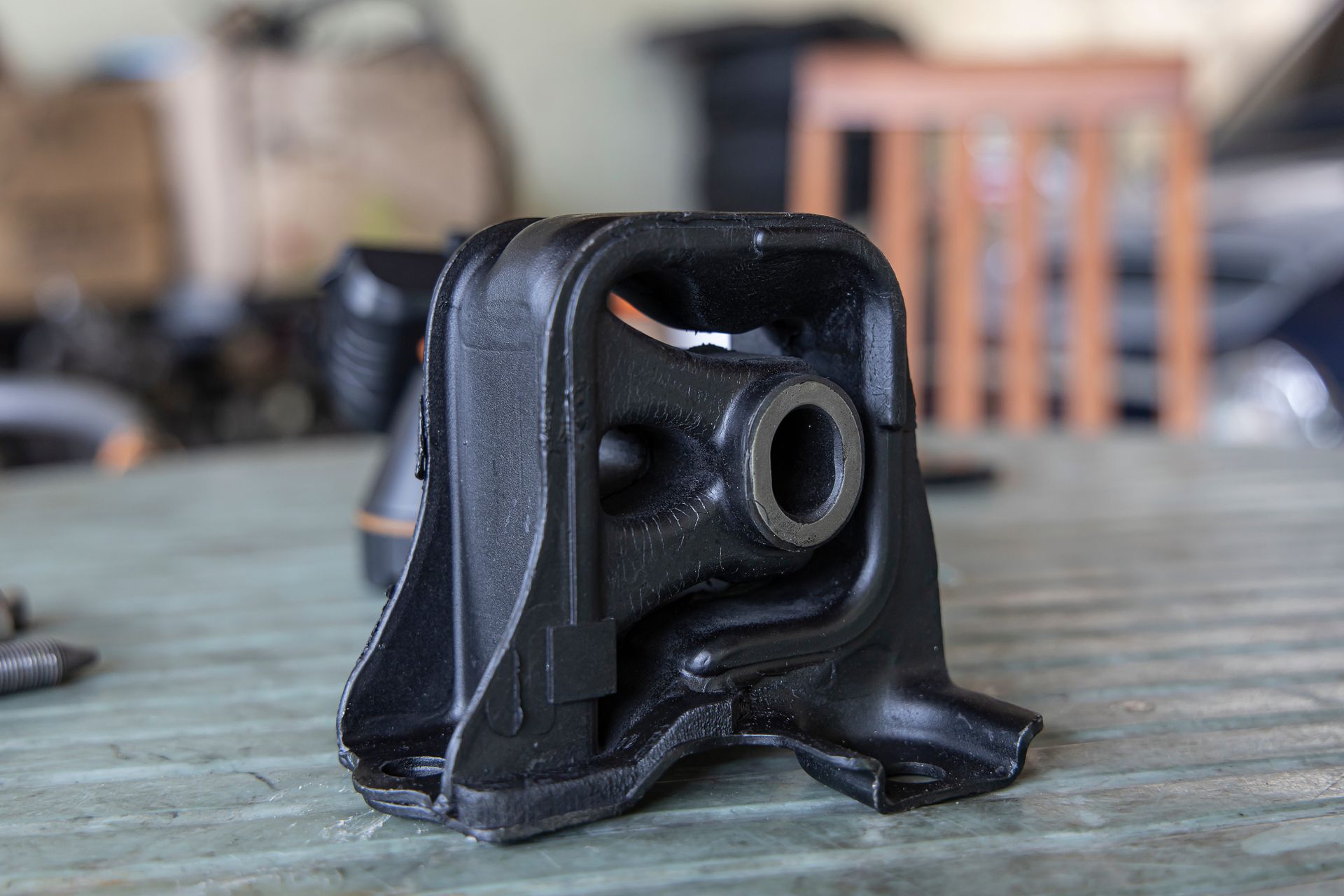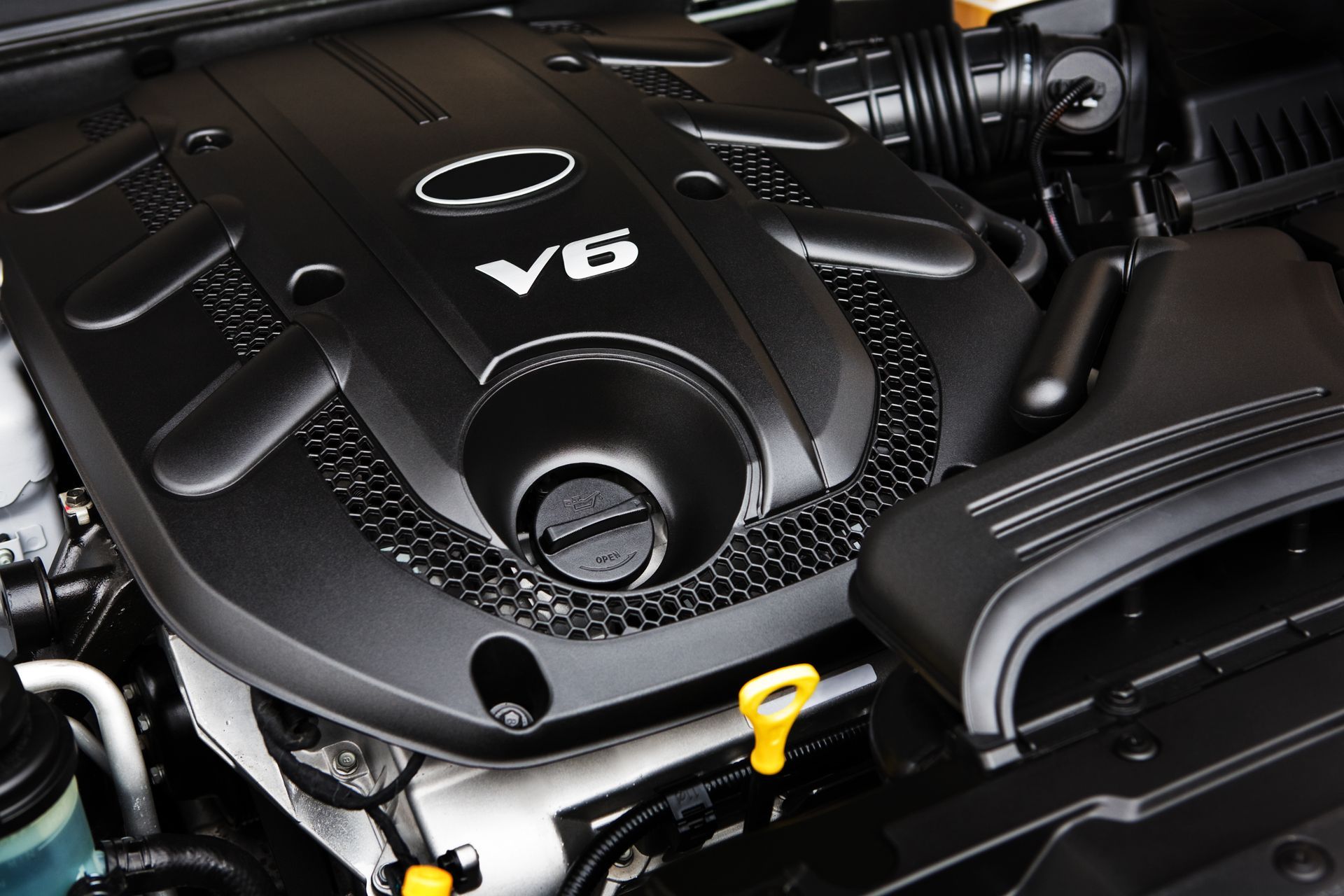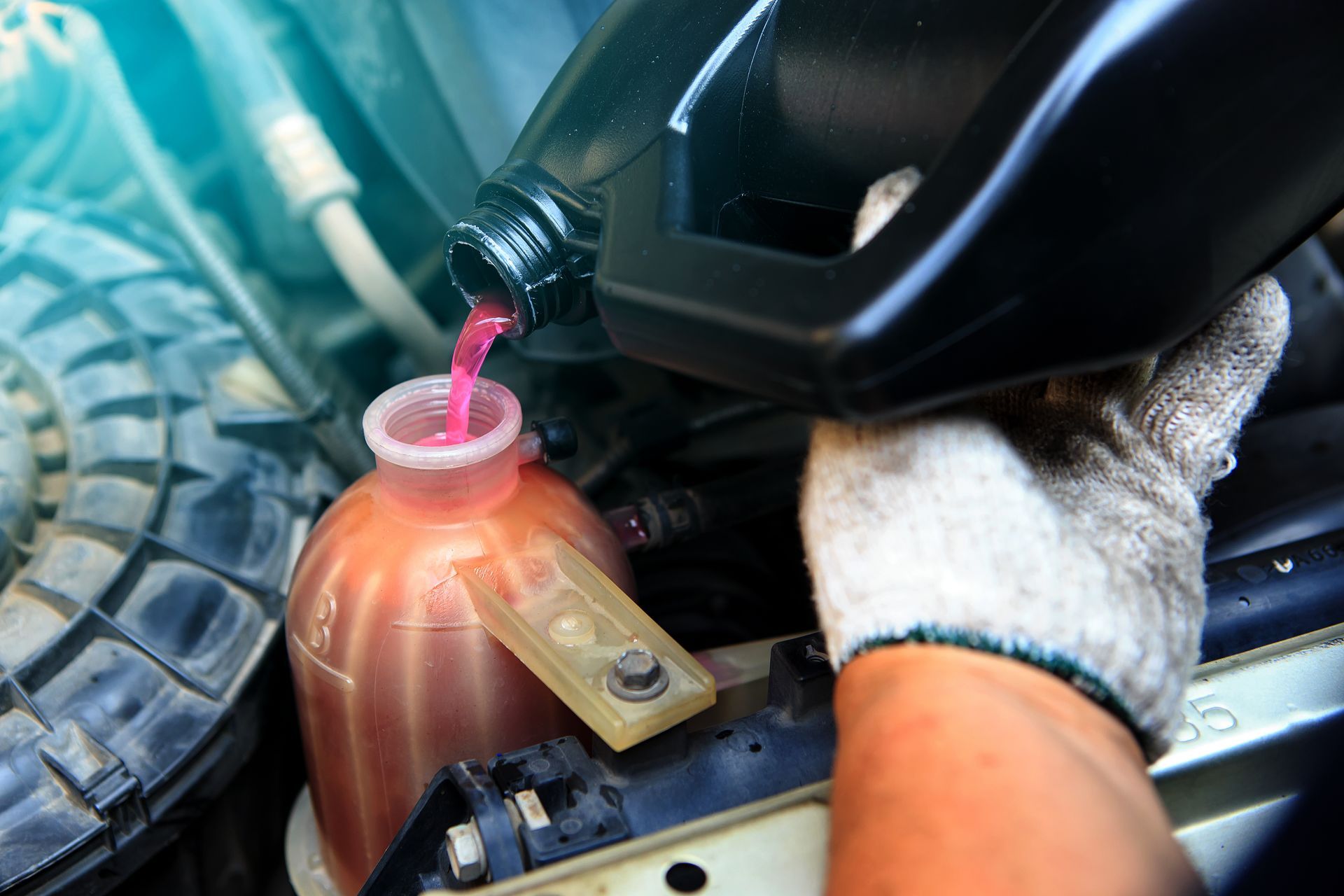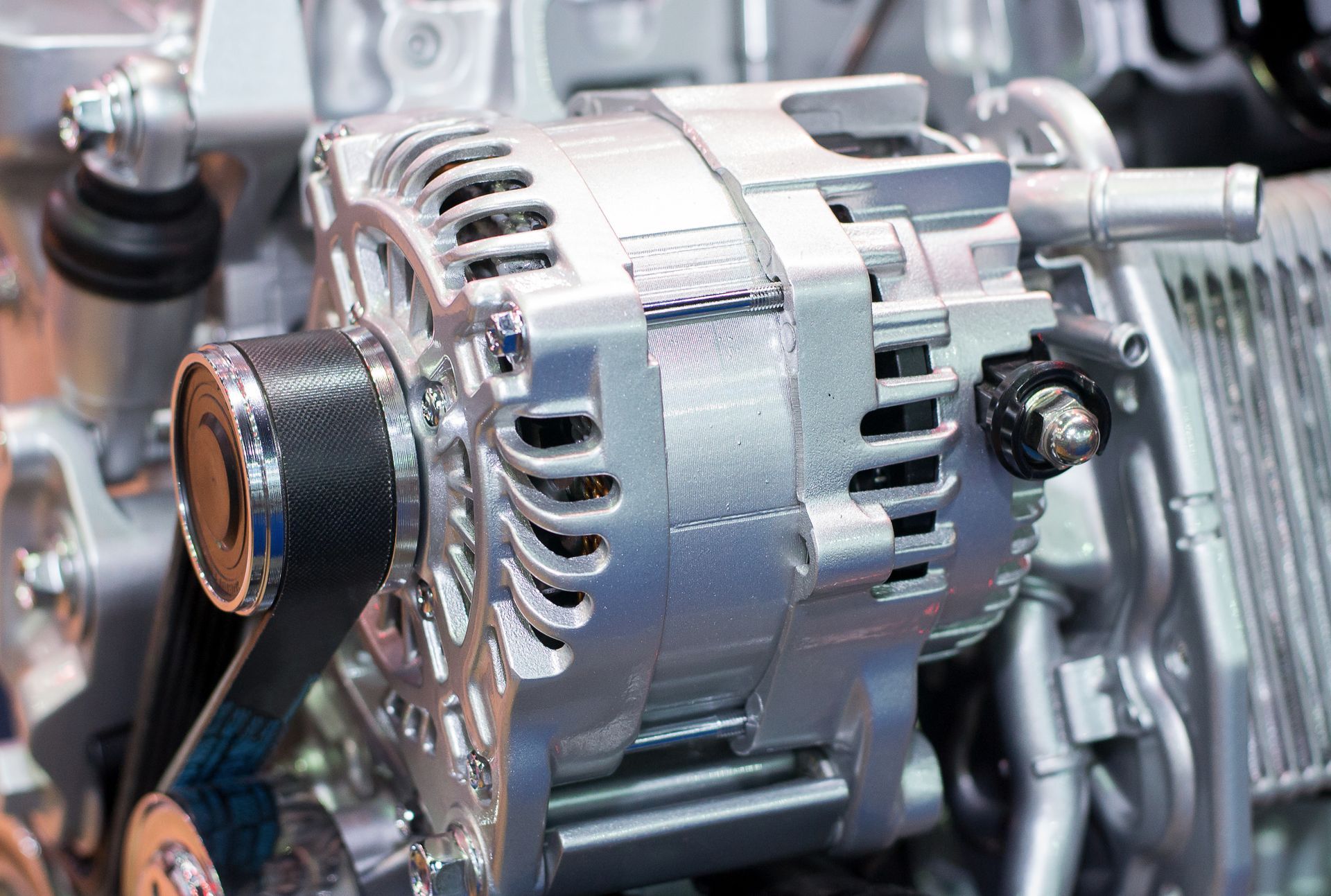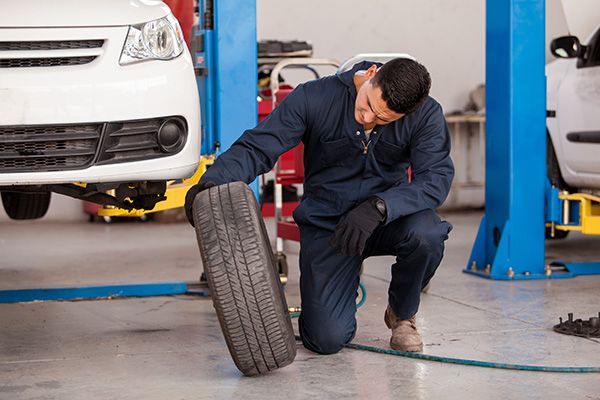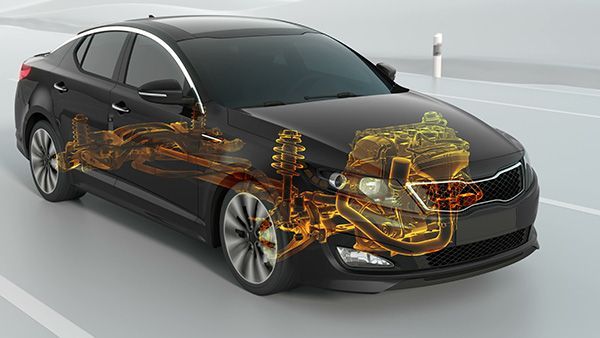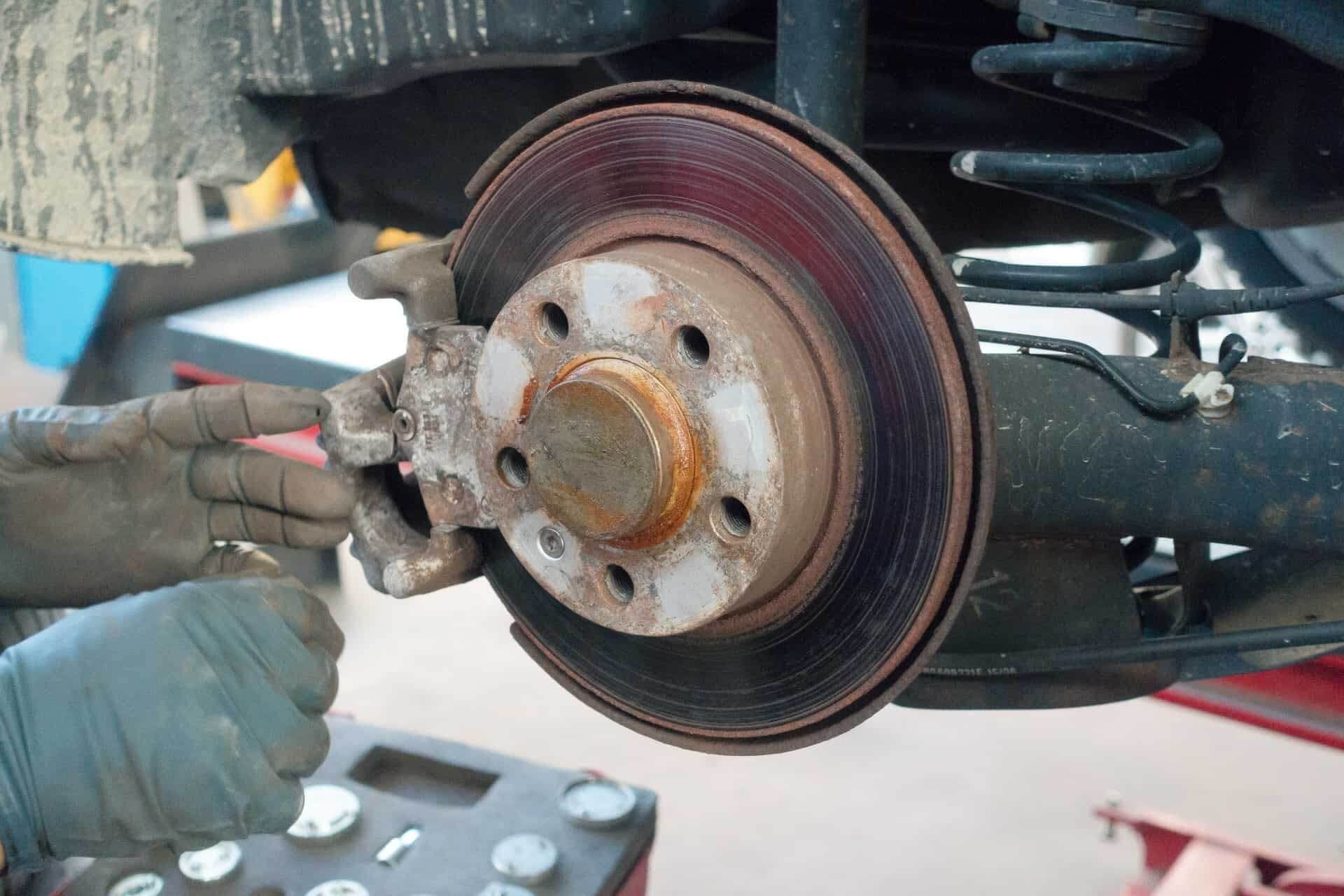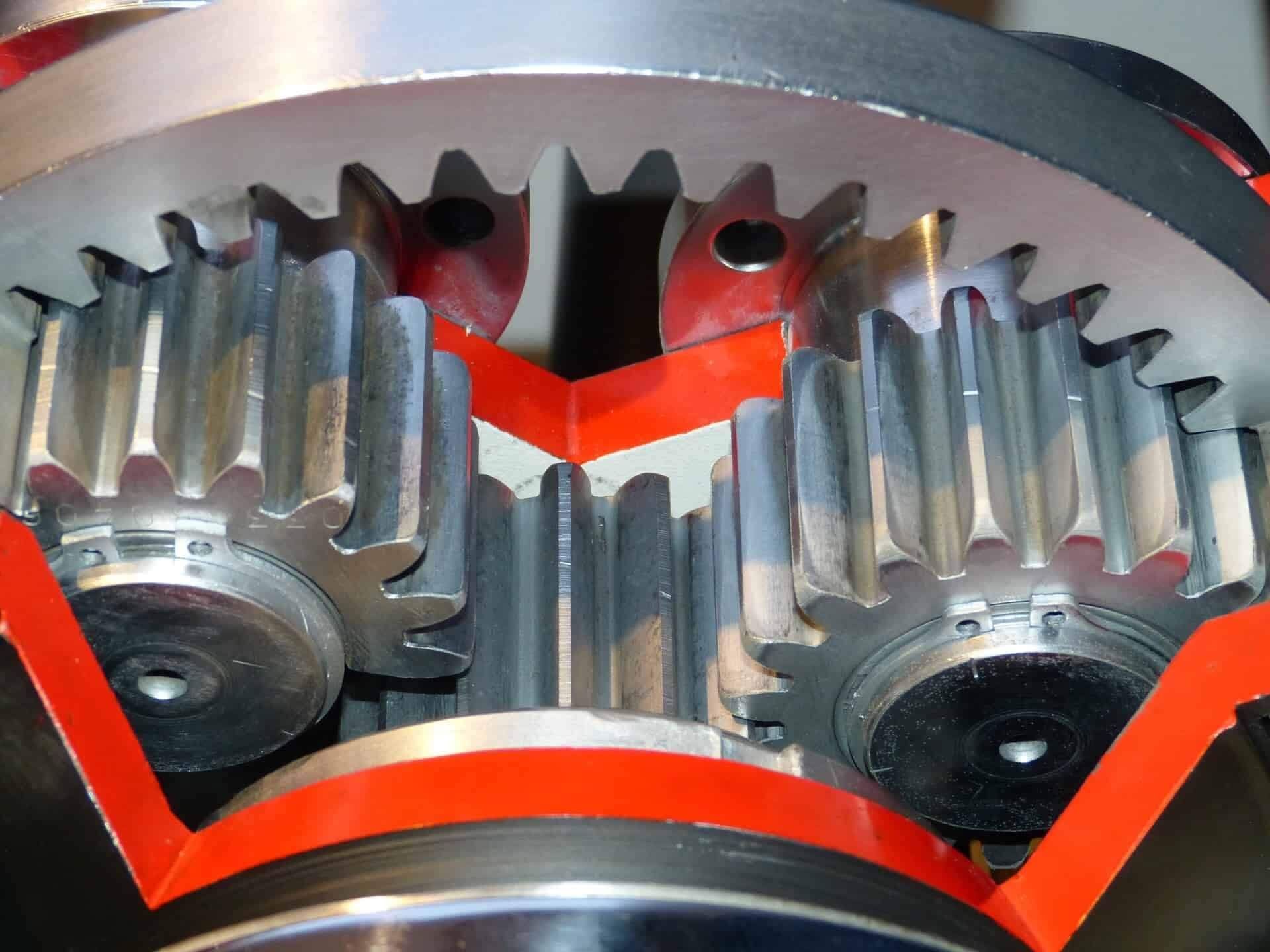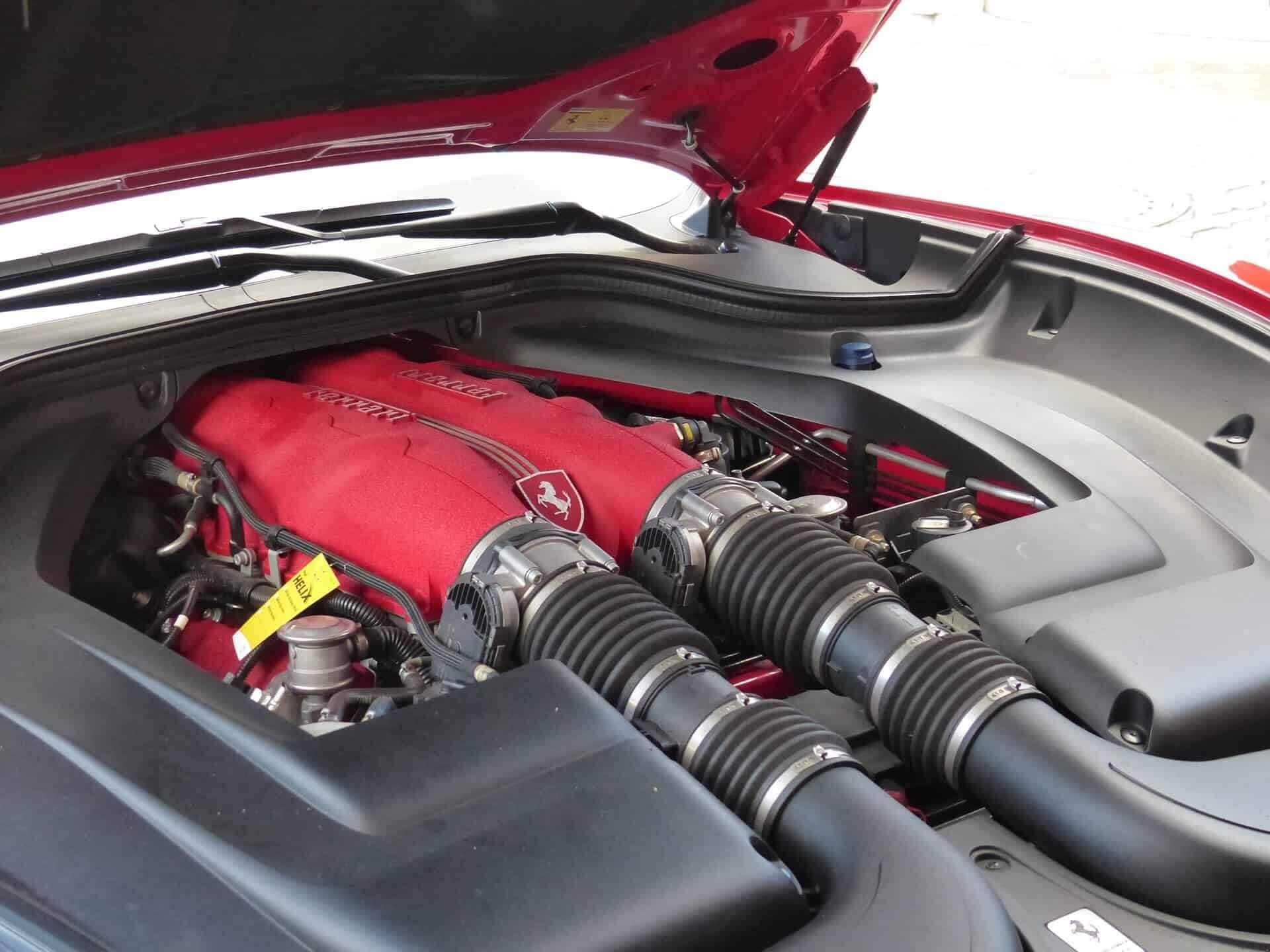
Radiator and Coolant
Host: Okay, Robert, let’s talk about radiators, radiator flushing. I’ve always wondered about that. Flushing the radiator, what does that really mean exactly? When you say, “We’re going to flush the radiator,” what happens?
Robert: Well, let’s imagine. In your radiator, or your cooling system, which is, imagine it’s the water that’s going through the engine and radiator to keep the engine regulated at a certain temperature. That’s why it’s not stagnant. It’s moving. It’s circulating.
That water/coolant, it degrades. It degrades over time. And the purpose of that coolant is to stop it from boiling or stop it from freezing. It does both. After a while, it loses that ability to do that. Not only that, the pieces inside the engine, the metal and gaskets, they’ll start to wear and fall apart, so you’ll get a gunk buildup inside that radiator.
Host: So, small particles coming off engine components, they end up in the coolant which flows through the radiator, as I understand it.
Robert: Correct.
Host: Which is a critical piece of the vehicle to keep it running at the right temperature. Now, I wasn’t aware of that. So, it’s not only just to cool the engine down, but potentially to keep it running efficiently at a proper temperature, right?
Robert: Correct.
Host: An ideal temperature.
Robert: Correct.
Host: So, I’m not sure a lot of folks know that, every time they’re driving, the coolant is degrading, essentially.
Robert: It is.
Host: So, how often should that be changed? And is the flushing process the changing process? Is that the same thing?
Robert: It is. A changing, flushing. Flushing is meant to say, “We’re literally going to take the coolant that is in there and we’re gonna push new coolant in there until all the old stuff is out.” So, it’s 100% gonna be brand-new fluid. If you just change it or drain it, let’s say, you may not be replacing all of it. That’s why a flush is a more thorough job.
Host: So, draining it means, you drain what you can by gravity, and then you replace the coolant that’s missing.
Robert: Right.
Host: But flushing, it is a different type of service.
Robert: Right. It takes an expensive machine, where we hook up your vehicle and it power-flushes the coolant out of there and puts brand-new coolant in.
A Radiator Flush Helps Extend a Vehicle’s Life
Host: For the average driver, how often should this be done, do you think?
Robert: You know, it happens… It’s due anywhere from 60,000 miles to 100,000 miles. Now, if you imagine, your Chevy pickups, the Chevy Silverado, GMCs, the Ford F-150s, F-250s, F-350s, diesel pickups, these are gonna be more in the 100,000-mile range, but then, they have a different type of fluid which is a higher quality. So, anything that has aluminum water pumps, they all require that higher, more expensive fluid, which is a yellow. It’s a yellow color.
Host: So, it’s actually, it looks different than normal fluid.
Robert: It does.
Host: It’s like a high-mileage.
Robert: High-mileage, high-temperature, yeah.
Host: So, for rough conditions or challenging conditions.
Robert: Right.
Host: Okay.
Robert: Now, that radiator, remember how I was saying, it gets dirty, contaminants in there, little bits of metal, or gaskets fall apart, and it starts to contaminate the fluid, or if you imagine, the radiator is a bunch of very, very thin little tubes. Now, those tubes, if they start to get clogged, they turn into a filter instead of a radiator, which it means it gets clogged.
Host: Which is going to just clog it more.
Robert: Right. So, I mean, you can change your…flush your radiator coolant for anywhere from, you know, $100, or you can replace that $700 radiator.
Host: Wow.
Robert: It’s a lot cheaper just to flush the fluid.
Host: So, it sounds like, to be on the safe side, every 50,000, 60,000 miles, it should be done.
Robert: 50,000, 60,000, that should be the standard, yeah.
Host: Okay. Anything else on radiators?
Beware of bugs
Robert: You know, here in Chico, we’re a farm community. Durham, Highway 99, there’s a lot of bugs. And if anyone who’s driven by Lake Oroville on Highway 99 in spring, summer, the amount of bugs that are hitting your windshield, if you imagine, all those bugs, they’re also hitting your radiator and they’re getting…they’re plugging up the radiator. So, you’re efficiency of that radiator deteriorates slowly, but over time, that needs to get cleaned out, and if it doesn’t get cleaned out…
Host: It’s not going to work well.
Robert: It’s not going to work well.
Host: How do you clean it out? Do you pressure wash it, or some other…?
Robert: You’ve got to be careful with a pressure washer because the little thins of metal are paper-thin, and if they bend, now, that’s another problem. So, have your auto repair shop, have your mechanic clean it out. He does it gently with a little tool.
Host: So, they can brush it out somehow?
Robert: It’s like a comb.
Host: A comb? A radiator comb.
Robert: A radiator comb.
Host: Wow.
Robert: It’s great.
Host: So, that really is an issue around here, though. I know exactly what you mean. In the springtime, there’s a million bugs because of the rice fields down south of Chico, and through Durham, and all around, even out to the river area, Sacramento River.
Robert: Yeah.
Host: So, wow, there’s just a million things to think of.
Robert: There are a million things to think of, and that’s why, if you just imagine, you get your oil change done regularly. Take it to a place where they’re gonna have certified mechanics, certified ASC mechanics to work on your car. They know what to look for. You go to a place where it’s a 10-, 15-minute quick lube, they’re not taking their time.
Host: That’s really interesting. So, they can’t. They can’t possibly do that because they’re focused on one service. So, I can completely see the benefit now of going to, can we just call it, a full-service shop?
Robert: Full-service shop, there you go.
Host: Is that the right term for it?
Robert: Yeah.
Host: Because they’re not only going to be addressing, let’s say, an oil change, but also looking at, check the brakes, check the fluids, check the radiator, all of the above, all the many things that could be not performing as well they could be and which might result in more expense, unnecessary expense, down the road because the maintenance just isn’t happening.
Robert: It’s always cheaper to maintain your car than to replace things. Always.
Host: Sure.


